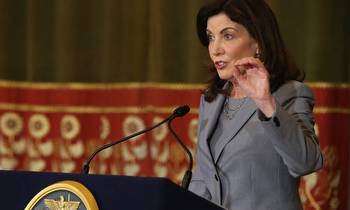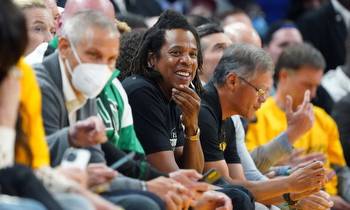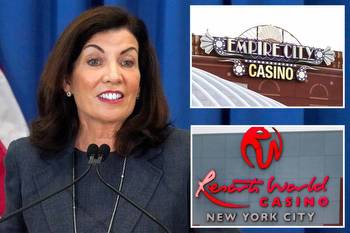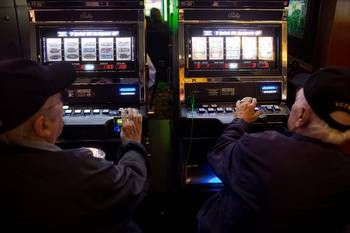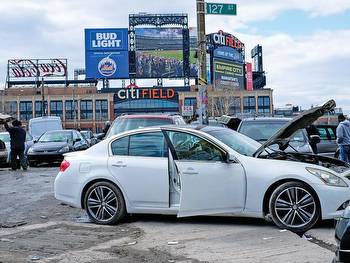NYC casino process moves ahead as key siting board gets members

A business leader, a former university president and a former New York City deputy mayor will oversee the bidding process for New York’s three remaining casino licenses, which are expected to be awarded in New York City and the surrounding area.
The state Gaming Commission on Monday unanimously approved the first three members of the Gaming Facility Location Board, a powerful five-member panel that will analyze any proposals for the potentially lucrative casino licenses and choose the three that will ultimately move on for final approval. It remains unclear when the commission will appoint the last two members.
The three members are:
- Quenia Abreu, president and CEO of the New York Women’s Chamber of Commerce;
- Vicki Been, a New York University law professor, former New York City deputy mayor and commissioner of the New York City Department of Housing Preservation and Development; and
- Stuart Rabinowitz, former president of Hofstra University.
The appointments mark the latest milestone in the process for awarding casino licenses in New York City, each of which will require the winner to pay a licensing fee of at least $500 million. By law, the facility board now has 90 days to begin formally soliciting proposals from casino developers.
Giants of the casino industry — including Hard Rock, Wynn Resorts and Las Vegas Sands — have been eyeing the licenses in hopes of opening a casino in New York City. Two existing racetrack casinos — Resorts World New York City in Queens, and Empire City Casino in Yonkers — are also expected to vie for a full license, which would allow them to expand into live table games.
Brian O’Dwyer, chair of the Gaming Commission, said the Gaming Facility Location Board will be granted the independence to do its work without interference.
“This is not preconceived,” he said at the commission’s meeting in Manhattan. “It is their job to make an independent decision as to the appropriateness of the licenses.”
By law, the Gaming Commission had until this week to approve at least a majority of what will ultimately be a powerful, five-person board, which will be tasked with awarding the state’s final three private casino licenses — all of which are expected to be awarded in New York City and the surrounding area.
In 2013, New York voters approved a constitutional amendment allowing up to seven private casinos statewide — complete with poker, Blackjack and other table games. The first four were limited to areas well north of the city, with a prior iteration of the board selecting proposals that were ultimately built in the Catskills, Schenectady, Seneca County and — after a significant push from local leaders after it was initially shut out — the Southern Tier.
The final three licenses were supposed to be up for grabs beginning next year. But Gov. Kathy Hochul and state lawmakers fast-tracked that process earlier this year, allowing the Gaming Commission to get the facility board in place this year.
Each member of the Gaming Facility Location Board had to meet a set of minimum qualifications laid out in state law, including having no less than 10 years of “responsible experience in fiscal matters.”
They were also required to have “significant” experience in the fields of finance or economics, either as an economist, a financial analyst or an academic – or as an executive in charge of a large organization. The position is unpaid.
The law also lays out strict ethics requirements. Members of the sitting board are prohibited from any financial interest — including ownership of stock — in “any gaming activities,” including “horse racing, lottery or gambling.” Nor are they allowed to have any business or family relationship to anyone holding a casino license, or have any holdings in companies that manufacture slot machines or other gambling machines.
For Rabinowitz, it’s a return to the board. He was on the prior iteration of the panel in 2014, along with former New York City Comptroller Bill Thompson; Kevin Law, who was then CEO of the Long Island Association; former gubernatorial aide Paul Francis; and Dennis Glazer, an attorney.
The new members of the board bring with them significant experience in the fields of economic development and housing.
Abreu founded the New York Women’s Chamber of Commerce in 2002 after previously serving as director of the Queens Economic Development Corporation.
Been is currently a NYU law professor and faculty director of the Furman Center for Real Estate and Urban Policy. She previously served as housing commissioner and deputy mayor for housing and economic development under former Mayor Bill de Blasio.
Unlike the state’s prior casino process, this round will come with a new layer of review.
As part of the agreement to fast-track the process earlier this year, Hochul and lawmakers also agreed to create community advisory boards that will determine whether particular casino proposals have support from their local community — a requirement to move on in the license-application process.
Those five- or six-member boards, depending on where they are located, will include local lawmakers and representatives from the mayor and governor’s offices. They will have to approve any proposals before they move on to the Gaming Facility Location Board for subsequent approval.










